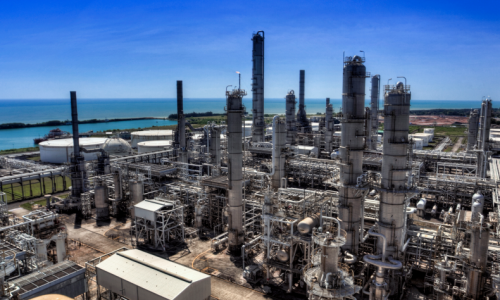State-owned aluminum producer PT Indonesia Asahan Aluminium (Inalum) plans to construct anUS$2 billion (Rp30.37 trillion) aluminum smelter with a capacity of 600,000 tons in Mempawah, West Kalimantan.
Hendi Prio Santoso, CEO of MIND ID, the state-owned mining holding company, revealed that the smelter will be integrated with the Smelter Grade Alumina Refinery (SGAR) Mempawah, which is being built by PT Borneo Alumina Indonesia (PT BAI), a joint venture between Inalum and State-owned diversified miner PT Aneka Tambang (Antam).
“(The capacity is) 600,000 tons. It will operate under Inalum,” Hendi said during the Inauguration of the First Bauxite Injection at the SGAR, Mempawah, West Kalimantan, on Tuesday, September 24, 2024.
The aluminum smelter will utilize alumina produced by the SGAR Mempawah refinery, which is being developed in two phases, with a total production capacity targeted at 2 million tons of alumina. According to Hendi, this amount of alumina could yield 1 million tons of aluminum.
With this production capacity, Indonesia could significantly reduce aluminum imports, which currently amount to 1.2 million tons annually.
The potential savings in foreign exchange from reduced aluminum imports are estimated at US$3.5 billion (Rp53 trillion) per year.
“Once this project is completed, we expect to no longer need imports, which will help us save foreign exchange and add value domestically,” Hendi said.
The Final Investment Decision (FID) for the aluminum smelter is expected by the end of this year, along with the FID for Phase II of the SGAR Mempawah project.
“We are targeting to finalize the FID for the aluminum smelter in parallel with SGAR, but the project is scheduled for completion in 2028,” Hendi concluded.









